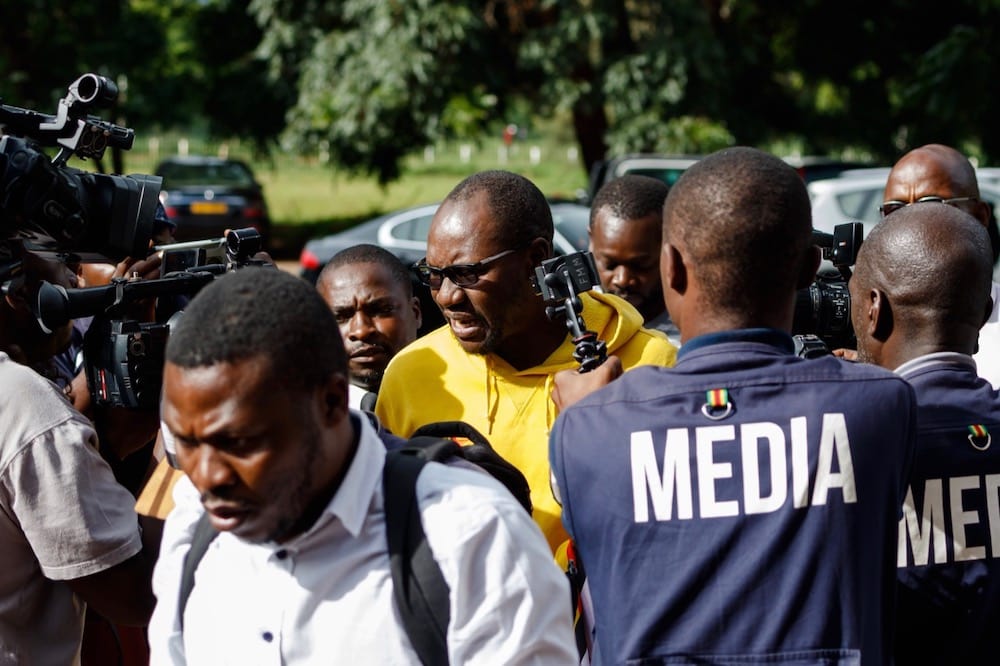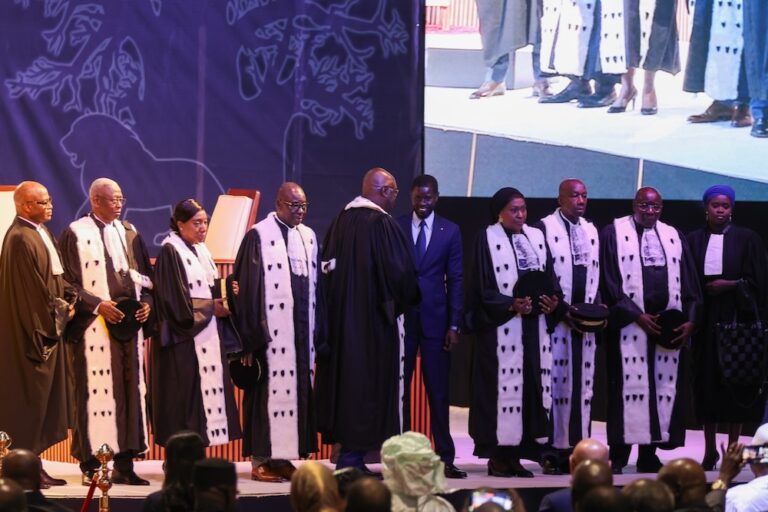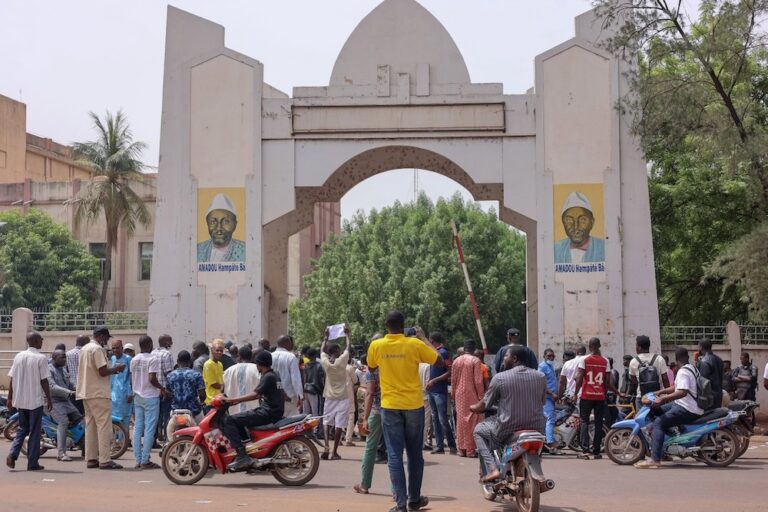MISA-Regional played host to a regional media stakeholders' meeting to mark this year's International Day to End Impunity, along with the 10th anniversary of the United Nations Plan of Action on the Safety of Journalists.
This statement was originally published on misa.org on 11 November 2022.
Without wanting to preempt today’s discussions, may I invite you to remember the four Ps on the safety of journalists – Prevention, Protection, Prosecution and Partnerships. This illustrates that we all have a role in promoting the safety of journalists from the media, civil society, the police and judiciary, and our governments.
Regional Governing Council member, Father, Dr. Barnabas Simatende, OMI
Welcome remarks to 10th Anniversary of the United Nations Plan of Action on the Safety of Journalists Africa Commemorations
11 November 2022
Victoria Falls, Zimbabwe
The Minister of Information, Publicity and Broadcasting Services, the Honorable Monica Mutsvangwa
The Minister of State for Matabeleland North, the Honorable Richard Moyo
The Permanent Secretary in the Ministry of Information, Publicity and Broadcasting Services, Mr Nick Mangwana
UNESCO Regional Director for Southern Africa & Representative to SADC, Prof Lidia Brito
Support partners, International Media Support and Media Monitors
Media and Freedom of Expression lobby groups from across the continent
Honorable guests
I’m honored to welcome you to this critical reflective conference by the peoples of Africa and the broader global community on the mechanisms to keep journalists safe while they do their work. This is a crucial day on our calendar as MISA, but more so as we commemorate the 10th Anniversary of the UN Action Plan on the Safety and Security of Journalists, as it is set out for stakeholders, in their diversity to introspect and meaningfully contribute to the mechanisms that ought to establish safety nets for the press and by extension the governance of expression, media, privacy and access to information globally.
I would also like to take this opportunity to welcome you all to the majestic Victoria Falls, one of the World’s wonders in tourist attractions and colleagues that travelled from beyond the borders to stand in solidarity with the course for lasting and far-reaching reforms towards the responsive protection of journalists while at work.
In addition, allow me to express on behalf of the convening partners, our profound appreciation to you and all the media stakeholders for the contribution you make to the struggles of promoting safe spaces for journalists while they do their work
Ladies and Gentlemen, it is time to act!
Today we belatedly commemorate the 10th anniversary of the UN Action Plan on Safety and Security of Journalists at a time when we have witnessed an escalation of attacks against media workers across the continent.
In Southern Africa, in 2020, Mozambican journalist Ibrahimo Mbaruco disappeared, and to date, no one has been held accountable for his disappearance. Tanzanian journalist, Azuro Gwanda, has now been presumed dead. He went missing in 2017.
In Lesotho, journalist Lloyd Mutungamiri, was seriously injured when suspected military hitmen shot him and was transferred to South Africa for medical attention in 2016.
Further, in 2020, journalist Ntsoaki Motaung, was shot by members of the Lesotho Mounted Police Service (LMPS), during a youth protest dubbed #BachaShutDown. In Eswatini, two journalists, Andile Langwenya, and Wonderboy Dlamini, were hospitalized after they were allegedly shot at by security services during protests in 2021.
While in Zimbabwe, only a few months ago, four journalists were heavily assaulted while on their way to cover an opposition rally in Gokwe. One of the journalists Toneo Rutsito, who is part of the gathering lost four teeth as a result of the attacks.
Last week (Nov 4th) in Zambia, a journalist, Lovemore Phiri, was attacked by suspected United Party for National Development cadres, while he was anchoring a live phone in radio program, which cadres felt that it was against the current government.
Ladies and gentlemen, media workers’ job is to shine a light in dark areas and hold people to account. Such attacks on journalists – which often go unpunished – are not only a risk to journalists but also pose as a risk to the democracies that we are trying so hard to build.
As the Washington Post’s motto aptly captures it, “Democracy dies in darkness”.
I don’t intend to belabor the past, but I want us here to commit to shaping the future of journalism and our democracies.
This year marks the 10th anniversary of the United Nations Plan of Journalists and the Issue of Impunity. This day serves as a reminder of the commitments that governments across the world have made to protect the safety and security of journalists.
As a way forward, we implore our various governments to take the UNPA and localize it into their national legal frameworks. This way, the UNPA does not become an abstract concept, but a living document that future generations will reference as it will guide strategic pathways towards a lasting safety and security regime for journalists in the line of duty.
Governments ought to go beyond lip service in committing to protecting journalists, but instead should come up with punitive measures for those that perpetrate attacks on media workers.
The police and the judiciary are key players in promoting the safety of journalists, and the organization I represent – Media Institution of Southern Africa (MISA) – commits to work with these key players to ensure that we create a conducive working environment for journalists.
We are forever grateful to UNESCO, who have been training the judiciary on the safety of journalists and have also developed a massive open online course (MOOC) for police officers on freedom of expression and the safety of journalists.
We hope that the judiciary, the police and the broader security community in our respective countries will take up these courses with the ultimate goal of holding to account the perpetrators of crimes against journalists.
Without wanting to preempt today’s discussions, may I invite you to remember the four Ps on the safety of journalists – Prevention, Protection, Prosecution and Partnerships. This illustrates that we all have a role in promoting the safety of journalists from the media, civil society, the police and judiciary, and our governments.
Ladies and gentlemen, before I take my seat, allow me to make a special mention of The Government of Zimbabwe for hosting us and facilitating for the ease of movement and security for delegates; UNESCO, who have made this event possible through financial and technical expertise support. I would like to also doff my hat to IMS, who have also contributed immensely to this function. Our sister organization, Media Monitors, for the co-support.
More importantly, I want to thank all our guests, who have flown from all over Africa and those from Europe – for making time to attend this milestone event in our collaborative steps towards lasting safety and security for journalists.
I would also like to make a special mention of the MISA secretariat, who have worked tirelessly for this event to be a success.
I wish you fruitful discussions.
Twalumba kapati



